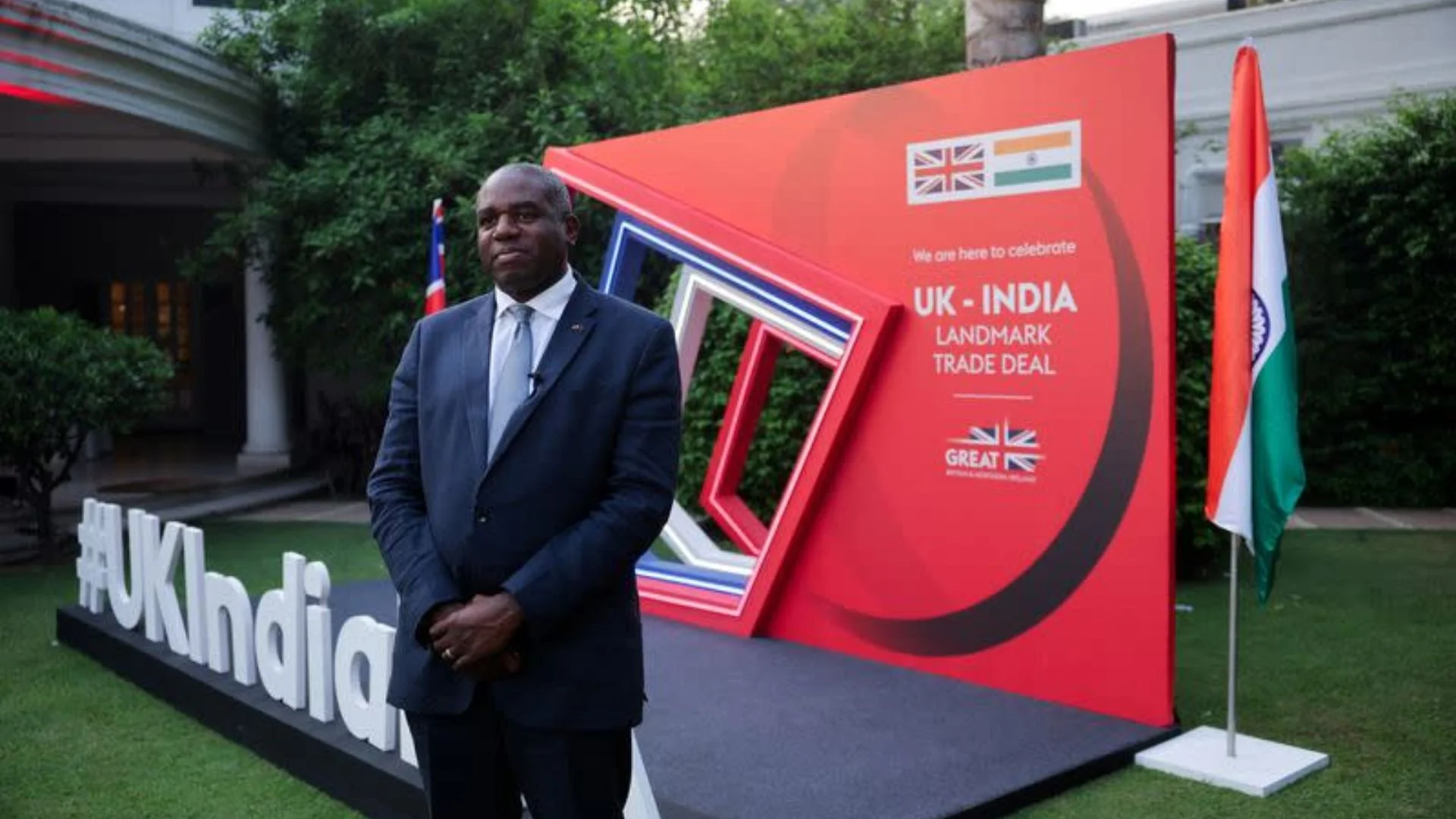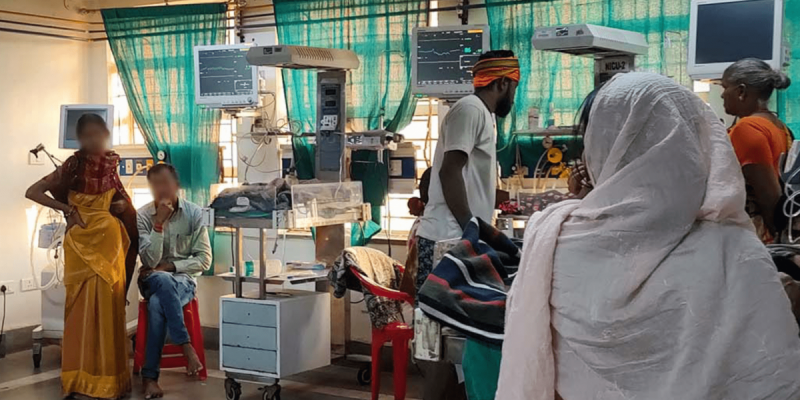- Courses
- GS Full Course 1 Year
- GS Full Course 2 Year
- GS Full Course 3 Year
- GS Full Course Till Selection
- MEP (Mains Enrichment Programme) Data, Facts
- Essay Target – 150+ Marks
- Online Program
- GS Recorded Course
- NCERT- First Ladder
- Polity
- Geography
- Economy
- Ancient, Medieval and Art & Culture AMAC
- Modern India, Post Independence & World History
- Environment
- Governance
- Science & Technology
- International Relations and Internal Security
- Disaster Management
- Ethics
- Current Affairs
- Indian Society and Social Issue
- CSAT
- 5 LAYERED ARJUNA Mentorship
- Public Administration Optional
- ABOUT US
- OUR TOPPERS
- TEST SERIES
- FREE STUDY MATERIAL
- VIDEOS
- CONTACT US
India-UK Ties Deepen: From Trade to Terror Fight
India-UK Ties Deepen: From Trade to Terror Fight

Why in the News?
- Recently, the UK Foreign Secretary visited India.
- This was the first visit by a minister from a major power (P-5 country) after recent tensions between India and Pakistan.
- India and the United Kingdom are deepening their relationship in many areas.
What are the Key Highlights of the Visite?
- Focus on Terrorism:
- India made it clear that it has zero tolerance for terrorism.
- The Indian External Affairs Minister said that India will never accept treating the attackers and victims as the same.
- India also thanked the UK for its support in the fight against cross-border terrorism.
- Free Trade Agreement (FTA):
- The Prime Minister of India praised the UK Foreign Secretary for his role in the strong progress of the India-UK Comprehensive Strategic Partnership.
- One major step in this was the signing of the Free Trade Agreement (FTA) and the Double Taxation Avoidance Convention.
- This agreement is seen as a big achievement.
- It is expected to increase two-way trade and investment and help build stronger supply and value chains between the two countries.
India-UK Free Trade Agreement
|
Double Taxation Avoidance
|
- Boost to Technology and Innovation:
- A new Technology Security Initiative (TSI) has been launched.
- It will help India and the UK to work together in AI, semiconductors, telecom, quantum computing, health tech, bio-tech, critical minerals, and advanced materials.
- Also, the Strategic Exports and Technology Cooperation Dialogue will help solve issues related to technology trade, such as licensing and regulation.
- Infrastructure and Finance:
- The UK-India Infrastructure Financial Bridge is expected to bring more long-term capital from the UK to India. This will help in the development of India's infrastructure.
- Education and People-to-People Ties:
- There is also strong cooperation in the education sector. More UK universities are planning to set up campuses in India. This will improve learning and exchange between students.
- On the migration front, the UK is working to make it easier for people from both countries to travel and work, which will help businesses and workers.
- Economic Gains:
- The new trade deal is expected to increase trade between India and the UK by over £25 billion every year. It could also raise the UK's GDP by £4.8 billion and increase wages by £2.2 billion each year.
- UK leaders have said this partnership is not just about trade. It is also about working together on technology, climate change, migration, and security.
- Cultural Cooperation:
- India and the UK signed a new Programme of Cultural Cooperation.
- It will help in areas like art, culture, tourism, sports, and creative industries.
- It will also support UK cultural exports and promote partnerships between museums and institutions in both countries.
- Business Support:
- Top Indian business leaders have welcomed the trade deal. It is expected to create new opportunities for trade and investment.
- The UK government also plans to launch a modern Industrial Strategy, which will make it easier and cheaper to do business in the UK.
|
Challenges |
Way Forward |
|
1. Delays in Finalising the FTA |
Speed up negotiations through regular high-level meetings and deadlines. |
|
2. Regulatory Barriers in Tech Trade |
Strengthen the Strategic Exports & Tech Cooperation Dialogue to resolve licensing and compliance issues. |
|
3. Different Standards and Norms (e.g., in AI, telecom) |
Set up joint working groups to harmonise technical standards and testing norms. |
|
4. Migration and Visa Issues |
Simplify visa processes for students, professionals, and skilled workers from both countries. |
|
5. Unequal Market Access for Businesses |
Ensure mutual benefits in trade agreements; support MSMEs and start-ups with special trade provisions. |
|
6. Tax Disputes Despite DTAA |
Improve awareness of DTAA benefits and create a joint grievance redressal system. |
|
7. Trust Deficit in Tech Sharing (Data, IP rights) |
Build confidence through legal protections, joint research, and transparent sharing frameworks. |
|
8. Limited Awareness Among Businesses |
Launch awareness programs, trade fairs, and business exchange platforms to inform firms of new opportunities. |
|
9. Underdeveloped Cultural and Educational Exchanges |
Fast-track UK university campuses in India; promote student and faculty exchange programs. |
|
10. Political Sensitivities (e.g., on terrorism or diaspora issues) |
Maintain open diplomatic channels; build consensus through regular Foreign Secretary-level dialogue. |
Conclusion:
India and the UK are building a modern partnership for a new global era. The strong cooperation in trade, technology, culture, education, and security shows that both countries want to work closely together in the future.
Technology Security Initiative (TSI)About:
Key Points:
|
|
Ensure IAS Mains Question: Q. Discuss the recent developments in India–UK bilateral relations with reference to trade, technology, and taxation. How do initiatives like the Free Trade Agreement (FTA), Double Taxation Avoidance Agreement (DTAA), and Technology Security Initiative (TSI) contribute to strengthening this strategic partnership? (250 words) |
|
Ensure IAS Prelim MCQ: Q. Consider the following statements regarding the India–UK relations in recent years:
Which of the statements given above is/are correct? A. 1 and 3 only Answer: A Explanation:
|
India’s EV Mission: Progress Delayed, Not Denied

